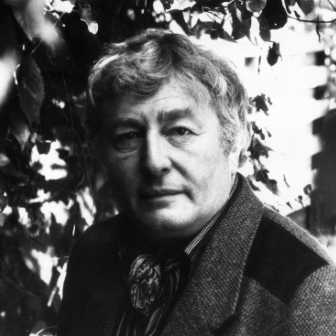Community
Creator of Amadeus and Equus bows out
One of the greatest postwar playwrights, Sir Peter Levin Shaffer, died on June 6 at the age of 90 while on a trip to Ireland from his Lancashire home. He gave the world masterpieces such as Amadeus and Equus.

OWN CORRESPONDENT
Shaffer was born into a prosperous Orthodox Jewish family in Liverpool, five minutes after his twin brother, fellow playwright Anthony. The family’s property business was later taken over by the twins’ younger brother, Brian.
Peter Shaffer was awarded a scholarship to Trinity College, Cambridge, to study history. He was a Bevin Boy coal miner during the Second World War and had a number of jobs including bookstore clerk and an assistant at the New York Public Library, before discovering his dramatic talents
Shaffer’s first play, The Salt Land (1954), was presented on the BBC. Encouraged by this success, Shaffer continued to write and established his reputation as a playwright in 1958, with the production of Five Finger Exercise. It won the Evening Standard Drama Award and when it moved to New York in 1959, it landed Shaffer the New York Drama Critics’ Circle Award for Best Foreign Play.
Equus (1973) won Shaffer the 1975 Tony Award for Best Play as well as the New York Drama Critics’ Circle Award. A journey into the mind of a 17-year-old stableboy who had plunged a spike into the eyes of six horses, Equus ran for over 1 000 performances on Broadway.
Shaffer followed this success with Amadeus (1979) which won the Evening Standard Drama Award and the Theatre Critics’ Award for the London production. This tells the story of Wolfgang Amadeus Mozart and court composer Antonio Salieri who, overcome with jealousy at hearing the “voice of G-d” coming from an “obscene child” – Mozart, sets out to destroy his rival. When the show moved to Broadway, it won the 1981 Tony Award for Best Play and, like Equus, ran for more than 1 000 performances. Shaffer wrote various other plays, several of which have been adapted to film.
Shaffer received the William Inge Award for Distinguished Achievement in the American Theatre in 1992. Two years later he was appointed Cameron Mackintosh Visiting Professor of Contemporary Theatre at Oxford University.
Shaffer was awarded the CBE in 1987 and named Knight Bachelor in the 2001 New Year’s Honours. In 2007 he was inducted into the American Theater Hall of Fame. He never married.
His brother Anthony’s death from a heart attack in 2001 affected Peter deeply. Despite an element of sibling rivalry, the brothers spoke together on the phone most days and it is known that Peter was shown first drafts of many of his brother’s thriller scripts.
Despite Peter’s claim that he had never been jealous of his brother, a series of letters written in the late 1960s (when Anthony had ditched his advertising career to work on Sleuth), laid bare Peter’s frustration. The letters, discovered at Anthony’s London home after his death, include such passages as: “I do feel threatened. As if my little Kingdom has been invaded, and I am no longer to be The Playwright, but again part of that faintly cute and annihilating ‘Which one of them did it?’”
In another letter, he implored: “Before it’s too late? I beg you to take another name for writing.” Anthony declined, and instead maintained the family name for Sleuth, before going on to write screenplays for the Alfred Hitchcock film Frenzy, and The Wicker Man. Though Shaffer always insisted that the dualities to be found in his plays were more “enactments of my own internal tension”, there is no doubt that sibling rivalry was a factor.
Yet Peter was hardly short of success. Through West End hits such as Five Finger Exercise and The Private Ear and the Public Eye, by the early 1960s he had become the favoured dramatist of the theatre impresario Binkie Beaumont.